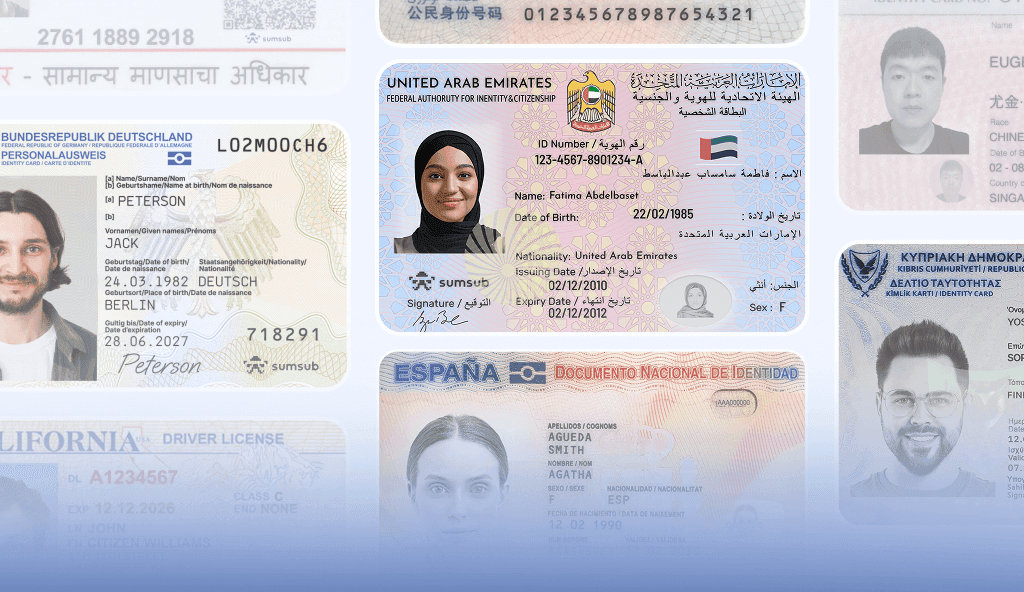- Feb 22, 2023
- 3 min read
Money Service Businesses and Their Money Laundering Risks
Learn about Money Service Businesses (MSBs)—also called Money or Value Transfer Services (MVTS)—and how these firms can avoid money laundering, fraud, and huge fines from regulators.
MSBs are a convenient tool for transferring and exchanging small amounts of cash quickly and anonymously. However, these firms are vulnerable to money laundering (ML) and the watchful eye of regulators. Just a few years ago, Western Union, the world’s largest MSB, agreed to pay a $586 million fine and admitted ignoring the fact that criminals used it for money laundering and fraud.
This article details how MSBs businesses can prevent fraud and huge fines in different countries.
What is a money service business?
A money service business (MSB) is a non-bank financial institution which transmits, converts or exchanges currency. Depending on the jurisdiction, these can also be known as a money transfer business, money transfer dealer or remittance service provider.
MSBs can be companies (Western Union, MoneyGram, OFX, etc.), or individuals providing the following services:
- Money transfer
- Currency exchange
- Remittance services
- Cash cheques, money orders or stored value cards
- Payment services like utility payments or tax payments
- Alternate Financial Service (AFS) like payday lending and overdrafts
- Microloans, crowdfunding, online marketplace, or car loans
- New Payment Method (NPM) or P2P lending platforms
MSBs and anti-money laundering (AML)
MSBs are considered to be vulnerable to money laundering since they may involve:
- Cash and various types of money transfers which can be hard to trace
- Third parties and intermediaries
- Digital platforms
- Customer anonymity
- Undisclosed sources of funds
Criminals may use MSBs to move illicit cash into the financial system by:
- transferring funds to overseas locations
- converting illegal cash into high denomination (usually foreign) notes such as the €200 or €500 note
- converting cheques derived from illicit activity into cash, or business and salary cheques into cash for tax evasion
MSBs attract special attention from regulators. In 2016, the FATF brought MSBs under the spotlight of global regulators, with most jurisdictions now requiring these firms to conduct a risk-based approach for Know Your Customer and transaction monitoring procedures.
How MSBs are regulated in different countries
USA
In the US, MSBs have to comply with the Bank Secrecy Act which is administered by the Financial Crimes Enforcement Network, or FinCEN. Accordingly, they must register with FinCEN and follow certain requirements (including developing an AML program, reporting cash transactions, etc. The full list can be found here).
FinCEN Form 107, “Registration of Money Services Businesses,” should “be completed and signed by the owner or controlling person of an MSB and filed within 180 days after the date on which the MSB is established.”
Failing to comply with MSB registration requirements may result in civil penalties of up to $5,000 for each violation, and $5,000 for each day a registration violation continues, according to 31 U.S.C. 5330 and 31 C.F.R. § 103.41(e)]. MSBs must renew registration every two years.
Read this article to learn about AML regulations in the USA and penalties for non-compliance: AML/KYC Guide to the USA—How Businesses Can Stay Compliant
UK
MSBs need to register with His Majesty’s Revenue and Customs (HMRC) under the UK money laundering regulations. You can check if your service needs to register with the HMRC here.
Non-compliance may be punishable by huge fines. In 2021, MT Global, a UK-based MSB, was slapped with a $32.4 million fine from the HMRC for breaches of anti-money laundering regulations.
Suggested read: Breaking Down KYC/AML Regulations in the UK: Easy-to-read Guide
Canada
MSBs must register with the Financial Transactions and Reports Analysis Centre of Canada (FINTRAC). On this website, companies can check if they must register with FINTRAC.
Failure to register with FINTRAC may result in fines of up to 2 million CAD ($1.5 million) and/or up to five years imprisonment.
Hong Kong
Any individual or business that intends to conduct money services must apply for a Money Services Operator license from the Customs and Excise Department under the Anti-Money Laundering and Counter-Terrorist Financing Ordinance (Cap. 615) (AMLO).
Singapore
MSBs are regulated by the Monetary Authority of Singapore (MAS). The following businesses fall under this regulatory scope:
- account issuance services
- domestic money transfer services
- сross-border money transfer services
- merchant acquisition services
- e-money issuance services
- digital payment token services
- money-changing services
To provide any kind of payment service, a formal application must be submitted to the MAS, which can grant one of the following licenses: a money‑changing license; a standard payment institution license; a major payment institution license (under the Section 6 of Singaporean Payment Services Act 2019).
Australia
If a business accepts instructions from clients to transfer money or property to a recipient, then it is a Remittance Service Provider (RSP), or MSB, and needs to register with the Australian Transaction Reports and Analysis Centre (AUSTRAC). Non-compliance with AML regulations may result in multi-million dollar fines.
To comply with local AML regulations, MSBs have to develop and maintain a robust AML compliance program, which includes risk assessment, employee training, and more.
MSBs should perform the KYC (Know Your Customer) process as part of Customer Due Diligence, which is required by AML regulations, as well as implement transaction monitoring and a risk-based approach.
Read this article to learn everything you need to know about effective AML compliance programs:
6 Key Steps to a Successful Anti-Money Laundering (AML) Program in 2023
FAQ
-
What is considered a money services business?
A money service business is a non-bank financial institution which transmits, converts, or exchanges currency. The most famous examples of MSBs are Western Union and MoneyGram.
-
Who is required to register as an MSB?
It depends on the jurisdiction. However, this most often includes currency dealers and exchangers, check cashers, as well as money transmitters.
-
What is an MSB in crypto?
A money service business in crypto stands for a business that deals with virtual assets (VA) and enables trading, exchanging, or transferring of cryptocurrencies.
-
Who regulates MSBs?
The regulating institution depends on the country. In the United States, for example, the regulating body is FinCEN, while in Hong Kong it is the Customs and Excise Department.
-
What is MSB licensing?
MSBs need to apply to their respective authority to be granted a license to legally operate in a given country.
-
Are money service businesses high risk?
Yes. MSBs are considered high-risk because of the nature of their transactions, which are often difficult to trace.
Relevant articles
- Article
- 1 week ago
- 11 min read
Learn what KYC is and the steps users should take to onboard smoothly.

- Article
- Jan 15, 2026
- 8 min read
AI-generated fake IDs are bypassing traditional KYC: learn why businesses need to rethink their identity verification in 2026.

What is Sumsub anyway?
Not everyone loves compliance—but we do. Sumsub helps businesses verify users, prevent fraud, and meet regulatory requirements anywhere in the world, without compromises. From neobanks to mobility apps, we make sure honest users get in, and bad actors stay out.


